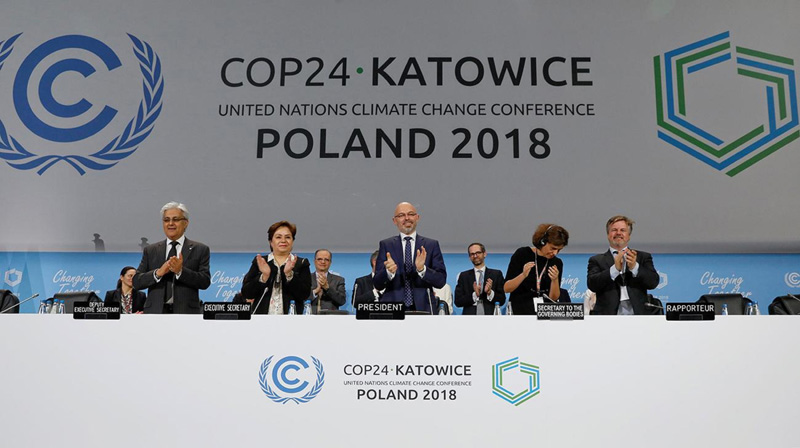


The 24th Conference of the Parties (COP 24) to the United Nations Framework Convention on Climate Change (UNFCCC), stretched beyond official closing time on December 14 evening and overran deep into December 15 in the southern Polish city of Katowice.
"This was not an easy task. It was hard and daunting, but we pushed it through," said Michal Kurtyka, president of the COP24 and state secretary of Poland's Ministry of Energy.
"Through this package, you have made a thousand little steps forward together," said Kurtyka.
"We will all have to give in order to gain," he said. "We will all have to be courageous to look into the future and make yet another step for the sake of humanity."
The agreed guidelines mean that countries can now establish the national systems that are needed for implementing the Paris Agreement starting from 2020. The same will be done at the international level.
Patricia Espinosa, executive secretary of the UN Framework Convention on Climate Change (UNFCCC) also hailed the achievement.
"Katowice has shown once more the resilience of the Paris Agreement - our solid roadmap for climate action," she said.

The delegates react after adopting the final agreement during a closing session of the COP24 UN Climate Change Conference 2018 in Katowice, Poland, on December 15, 2018.
The agreed "Katowice Climate Package" includes guidelines that will operationalize the transparency framework, setting out how countries will provide information about their Nationally Determined Contributions (NDCs) that describe their domestic climate actions.
The rulebook spells out mitigation and adaptation measures as well as details of financial support for climate action in developing countries.
The package also includes guidelines that relate to the process for establishing new targets on finance from 2025 onwards to follow-on from the current target of mobilizing US$100 billion per year from 2020 to support developing countries.
The guidelines also include how to assess progress on the development and transfer of technology to developing countries to help them adapt to climate challenges.
Under the rulebook, the participating countries shall update their voluntary goals of carbon emission reduction by 2020 with the pledges by the countries reviewed at a UN climate summit to be held in September 2019.
The UN climate conference came as latest reports show that climate challenges remain undeterred and global carbon emissions are set to hit an all-time high in 2018.